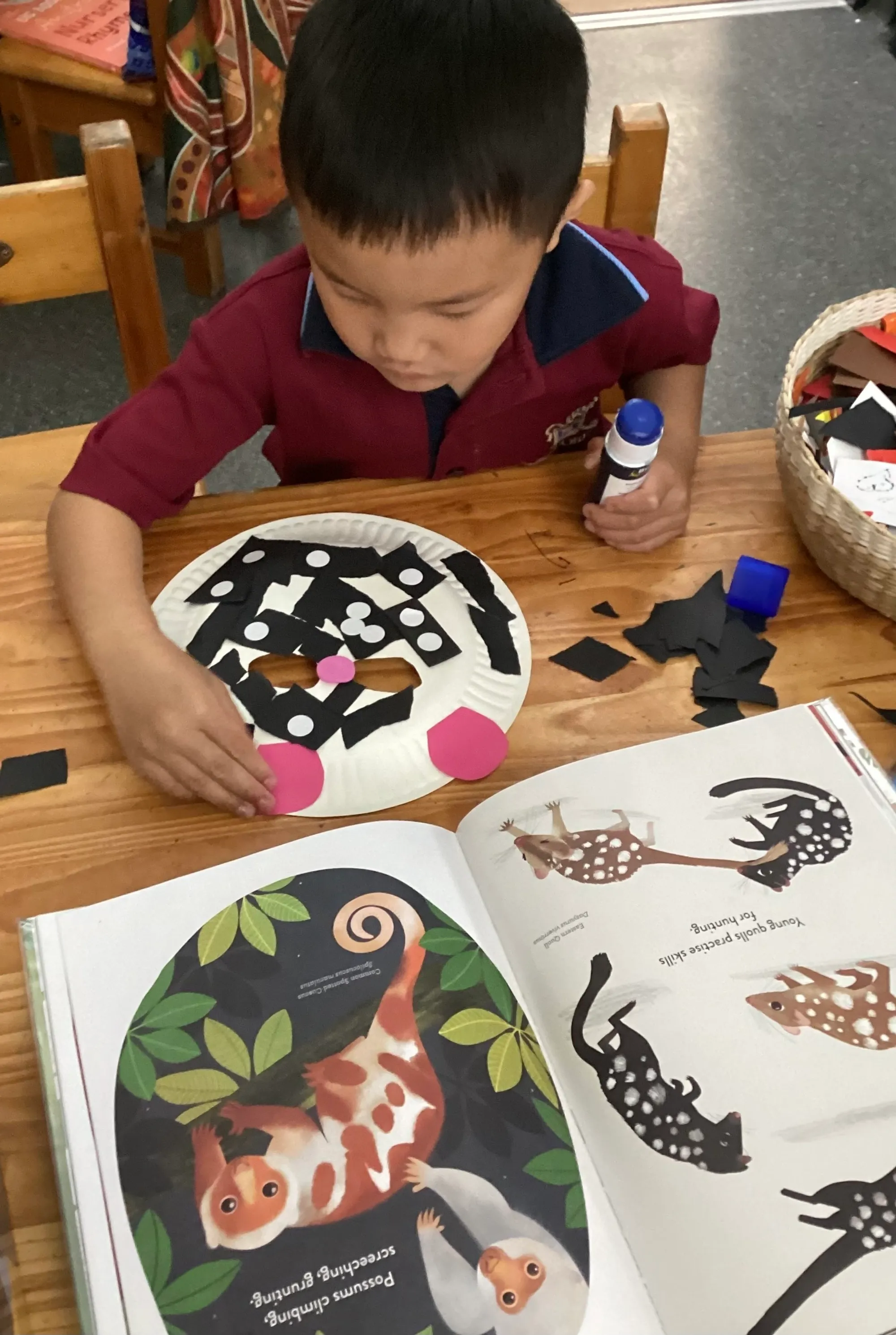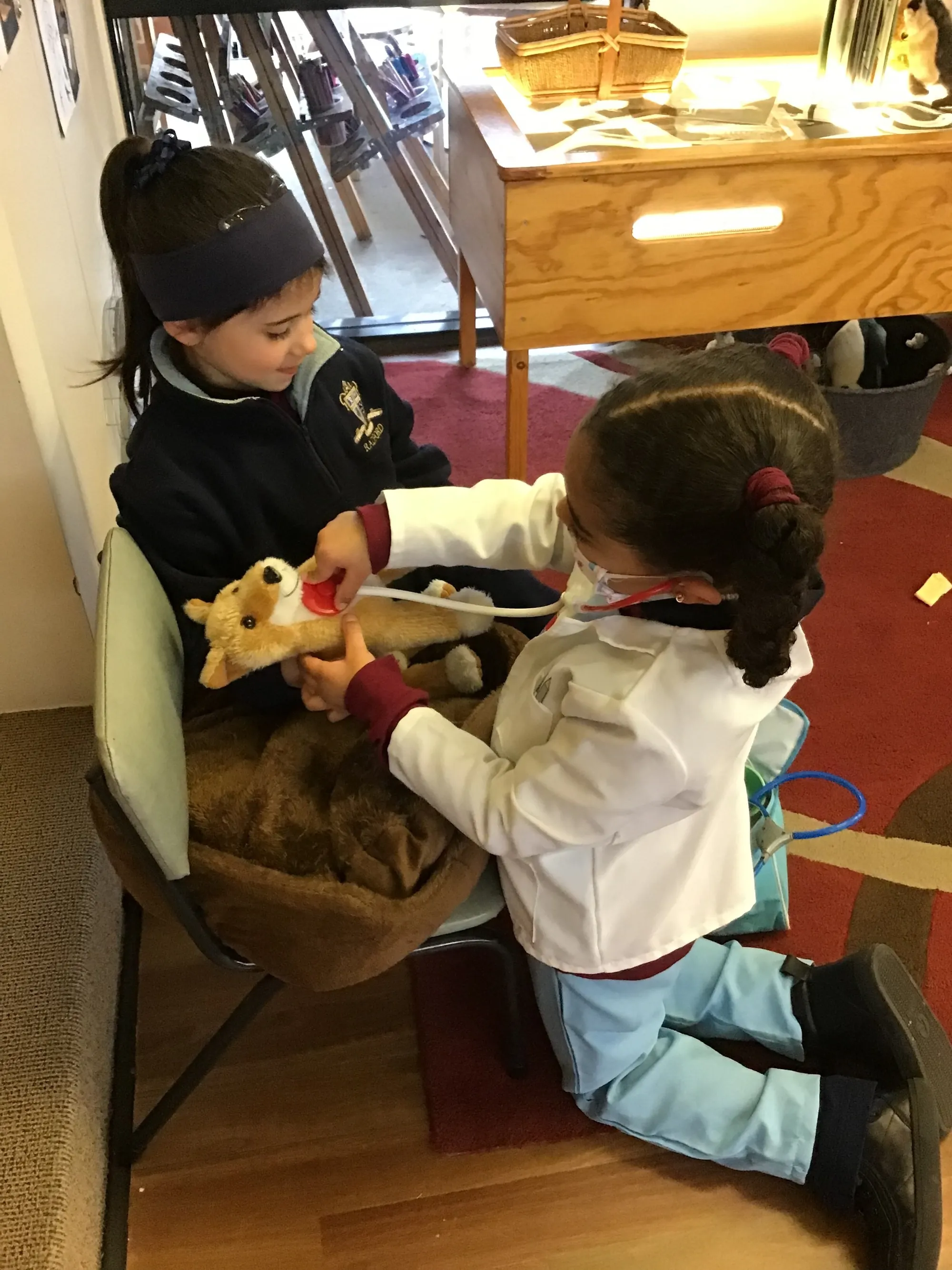In the spotlight
By Mrs Jo O'Brien, Assistant Head of Junior School Learning and Teaching
In his iconic 1970 song, Where Do the Children Play?, Cat Stevens poses a poignant question about the cost of progress and the neglect of what truly matters. While the song critiques environmental degradation and technological advancement, its core message resonates powerfully in today’s educational settings. As schools increasingly prioritise results, assessment and data, we are left to ask not necessarily where do the children play, but when do the children play?

The International Baccalaureate’s Primary Years Programme (PYP) embraces play as a foundation for inquiry, especially in the early years (children aged 3-6). Within this framework, children explore ideas and develop understanding through play-based, student-led learning experiences. Similarly, the Reggio Emilia approach positions the child as a capable, curious co-constructor of knowledge where play becomes a language of learning.
These perspectives are not just pedagogical preferences, they are ethical responsibilities. According to Article 31 of the United Nations Convention on the Rights of the Child, play is a fundamental right. Schools are therefore obligated to provide time and space for play, as it has a crucial role in contributing to a child’s development, growth and identity.
Early Childhood Australia’s 2019 Statement on Play outlines six core principles that guide high quality, meaningful play:
- Play is essential and valuable in its own right and for children’s learning and development: every child has a right to have play in their life.
- Every child has a right to a balance of play experiences that develop a healthy mind and body and a sense of well-being.
- Play builds each child’s capacity for communication and develops language and thinking skills.
- Through play, children develop a sense of self and the emotional and social competence to participate in relationships.
- Play connects children to their world, their cultural identities, to others and other ways of knowing, doing and being.
- Children's right to play is our collective responsibility: all adults have a role in understanding, protecting and valuing the importance of play for every child, in every community.

These core principles in conjunction with the PYP, Reggio Emillia and Early Years Learning Framework (EYLF) underpin the intentional planning of play-based learning experiences in the Junior School. We view play as not a pause from ‘the real work’ but as the real work of childhood.
Play-based learning is embedded in the Junior School both formally and informally through the following opportunities:
- Outdoor learning and nature play: Highlighted by our bespoke programs - Bush School for Kindergarten to Year 2, Out the Gate lunchtime play and the Wildings and Bushwalking co-curricular groups.
- Loose parts play: Making and creating with open-ended materials, including natural and recycled materials and everyday objects.
- Imaginative play: Using creativity to create roles and scenarios during social play.
- Construction play: Building, creating and manipulating objects.
- Games with rules: Creating and following rules to promote teamwork and shared goals, which is a large focus area in our health and physical education learning experiences.
While this list is not exhaustive, it does capture the breadth of play experiences our children are offered in the Radford College Junior School. We remain committed to preserving space for play as a vital part of learning and will continue to honour the question: "When do the Children Play?”
